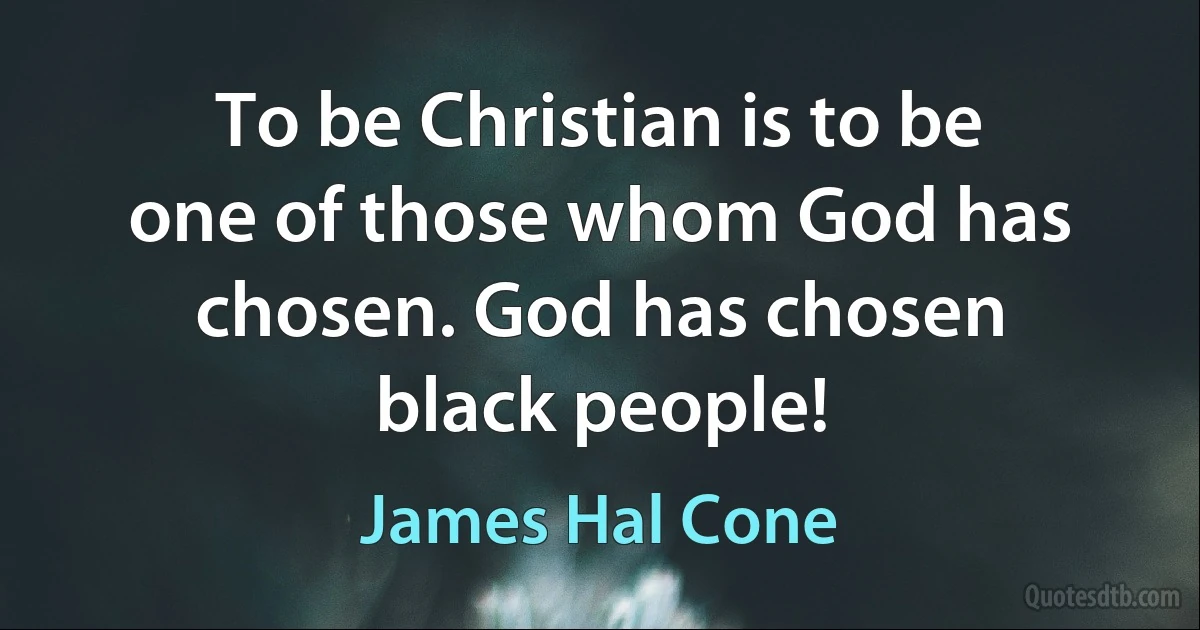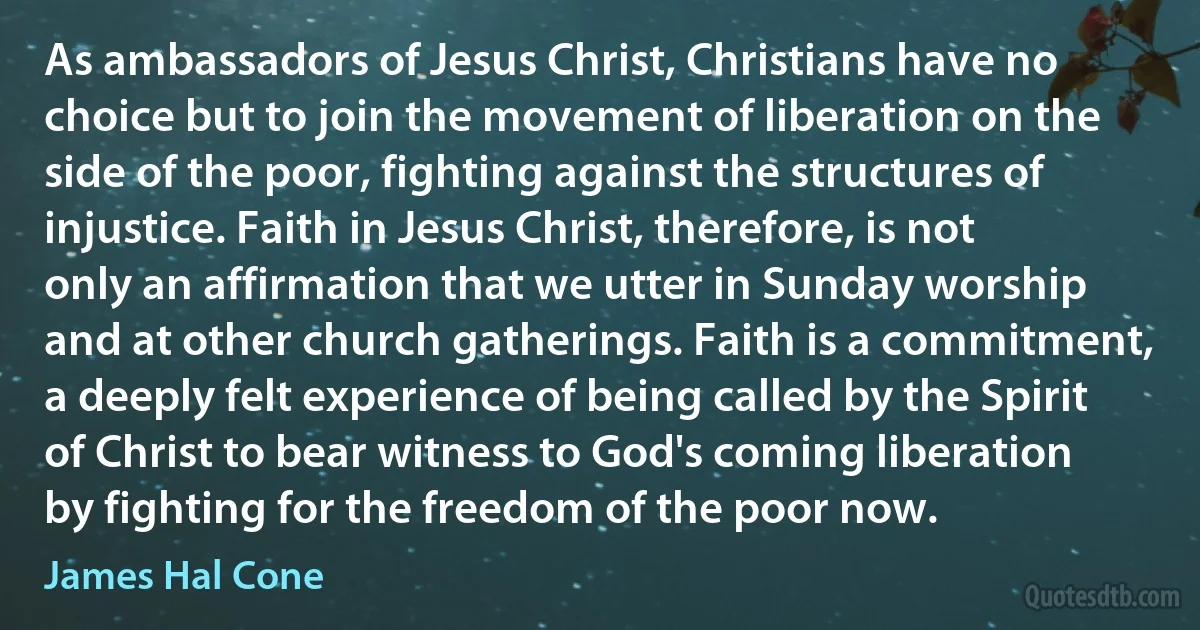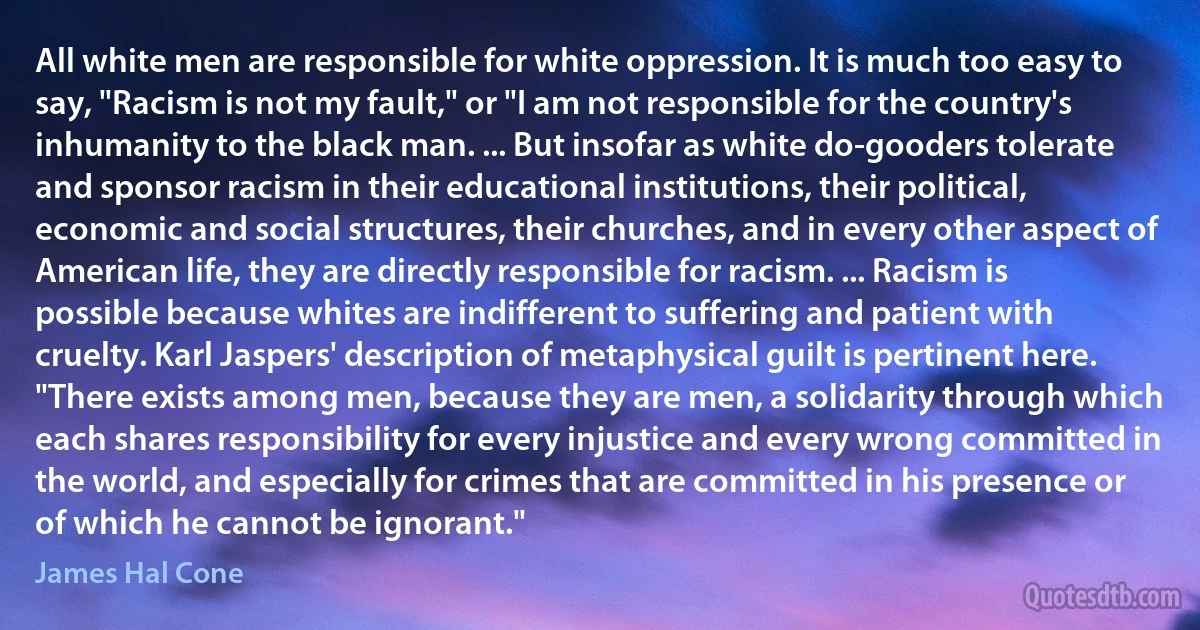James Hal Cone quotes
Racism is a complete denial of the Incarnation and thus of Christianity. ... If there is any contemporary meaning of the Antichrist (or "the principalities and powers"), the white church seems to be a manifestation of it. It was the white "Christian" church which took the lead in establishing slavery as an institution and segregation as a pattern in society by sanctioning all-white congregations.

James Hal Cone
The dialectic between the social situation of the believer and Scripture and the traditions of the Church is the place to begin the investigation of the question, Who is Jesus Christ for us today? Social context, Scripture, and tradition operate together to enable the people of God to move actively and reflectively with Christ in the struggle of freedom.

James Hal Cone
Is it possible to understand what God's love means for the oppressed without making wrath an essential ingredient of that love? What could love possibly mean in a racist society except the righteous condemnation of everything racist? Most theological treatments of God's love fail to place the proper emphasis on God's wrath, suggesting that love is completely self-giving without any demand for obedience.

James Hal Cone
The black theologian must reject any conception of God which stifles black self-determination by picturing God as a God of all peoples. Either God is identified with the oppressed to the point that their experience becomes God's experience, or God is a God of racism. ... The blackness of God means that God has made the oppressed condition God's own condition. This is the essence of the Biblical revelation. By electing Israelite slaves as the people of God and by becoming the Oppressed One in Jesus Christ, the human race is made to understand that God is known where human beings experience humiliation and suffering...Liberation is not an afterthought, but the very essence of divine activity.

James Hal Cone
Black theology cannot accept a view of God which does not represent God as being for oppressed blacks and thus against white oppressors. Living in a world of white oppressors, blacks have no time for a neutral God. The brutalities are too great and the pain too severe, and this means we must know where God is and what God is doing in the revolution. There is no use for a God who loves white oppressors the same as oppressed blacks. We have had too much of white love, the love that tells blacks to turn the other cheek and go the second mile. What we need is the divine love as expressed in black power, which is the power of blacks to destroy their oppressors, here and now, by any means at their disposal. Unless God is participating in this holy activity, we must reject God's love.

James Hal Cone
Jesus Christ is not a proposition, not a theological concept which exists merely in our heads. He is an event of liberation, a happening in the lives of oppressed people struggling for political freedom. Therefore, to know him is to encounter him in the history of the weak and the helpless. That is why it can be rightly said that there can be no knowledge of Jesus independent of the history and culture of the oppressed. It is impossible to interpret the Scripture correctly and thus understand Jesus aright unless the interpretation is done in the light of the consciousness of the oppressed in their struggle for liberation.

James Hal Cone



